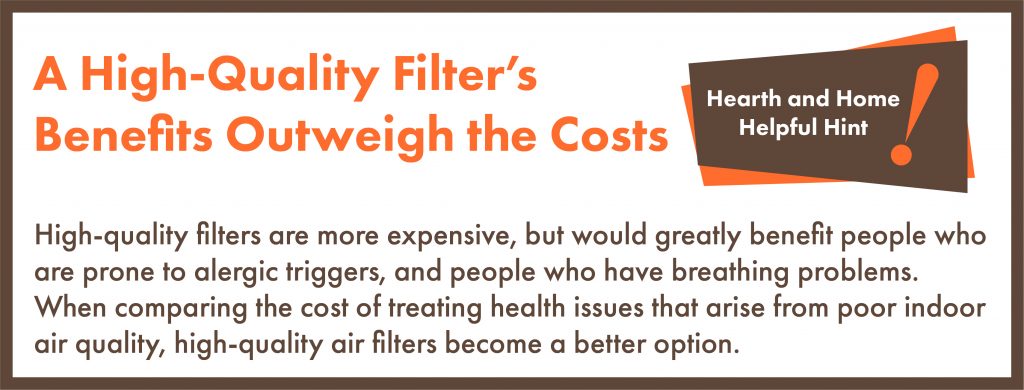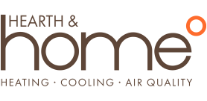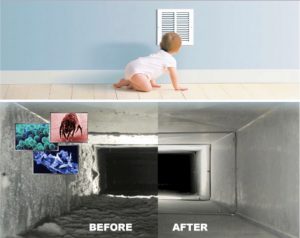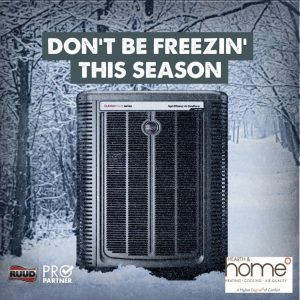All You Need to Know About HVAC Filters
HVAC systems make you comfortable and relaxed. However, they can’t function well without air filters. HVAC Filters are essential components of HVAC systems. They perform vital functions in improving the quality of your indoor air. Here’s everything you need to know about HVAC filters.
Functions of HVAC Filters
The main function of an air filter is to release clean and breathable air into your home. Hence, air filters are vital units that can deteriorate or improve your health condition. In addition, HVAC traps air contaminants and particles such as pet hair, dust, dirt, pet dander, lint, and carpet fibers. These tiny particles stick to the air filter making it hard to remove them entirely. So a better option would be to use a disposable filter rather than a reusable filter.

The Various Types of HVAC Filters
Air filters can be categorized based on material, shapes, capacity, prices, and rating.
Washable Filters: As the name implies, these are filters that can be washed and used again. They can come in a flat or pleated form. Washable filters are more eco-friendly when compared with disposable ones.
Flat-Panel Air Filters: These disposable filters are made of fiberglass. They are cheap and easy to install. Flat-panel filters are not the best quality for filters because many particles can pass through them. But if you are looking to buy cheap air filters, you can consider purchasing this air filter.
Pleated Air Filters: Pleated filters are disposable filters that use plastic fibers or cotton mesh to prevent particles from entering your home. The pleats on the filters make it capture more particles. Pleated air filters are high-quality filters, and they are slightly more expensive flat-panel filters.
Electrostatic Air Filters: These air filters use static electricity to capture particles, tiny organisms, and gases. Electrostatic air filters vary as they can be pleated or flat. There are also disposable or washable ones.
High-Efficiency Particulate Air (HEPA) Filters: These are high-quality filters that capture the tiniest particles in the air. The filters can capture up to 99.97% of particles. They are used in medical facilities and laboratories where clean air is essential. HEPA filters are compatible with some HVAC systems, not all of them.
MERV Rating
MERV is the abbreviated name for Minimum Efficiency Reported Value. It rates the efficiency of HVAC filters in preventing dirt from entering your house. MERV ratings range from 1-20. A higher rating implies that the filters capture tiny particles, while a lower rating indicates that the filter captures bigger particles. The higher the MERV rating, the more quality the air filter is because it can trap tiny particles.
What’s more, low-rated HVAC filters work better in trapping larger particles. However, they are not effective in improving your indoor quality. Filters that are rated 20 are used in facilities where sterile air quality is vital. MERV ratings can help you make a decision when buying an HVAC filter. Consider choosing filters with ratings of not less than 13, especially if you are prone to asthma or allergic triggers.
Furthermore, MERV filters that are rated 13 are appropriate for residential buildings. While purchasing air filters, you should know that there are some HVAC filters that use other rating systems. Some filters give details on the kind of particles the filter can trap. However, most HVAC system manufacturers package their filters with MERV rating stickers.
How HVAC Filters affect Air Quality
Particles and gases can contaminate the air and reduce indoor air quality. Particles that affect air quality include dust, and pet dander, while gases may include secondhand smoke, carbon monoxides, and chemical fumes. These gases can cause asthmatic triggers and health problems when inhaled. HVAC filters play a significant role in improving your indoor quality by preventing these particles and gases from entering your home. They do this by trapping the particles before they enter your home. They also minimize air impurities and making it healthier to breathe by filtering the air.
Air Filters Benefits vs. Costs
Low-quality filters are cheaper than high-quality filters. As much as high-quality filters are expensive, their benefits outweigh the costs. High-quality filters would benefit people who are prone to allergic triggers and people who have breathing problems.
When comparing the cost of treating health issues that arise from poor indoor air quality, air filters become a better option. Therefore, buying air filters regularly is a cheaper investment than treating respiratory problems. Air filters reduce the risk of respiratory issues, although they don’t entirely prevent illnesses.

Where to Install the Filter
HVAC filters are found in the return vents. Depending on the size of your home, you can have 1-3 return vents. It’s easy to locate the return vent by placing your hands on it. The return vents take in the air rather than blowing them out.
Air Filter Maintenance and Replacement
Air filters with higher MERV ratings need to be changed more frequently. They should be replaced at least every 3 months. Not replacing them regularly leads to a reduction in air quality and efficiency. A decrease in efficiency can lead to higher electricity bills for you.
Additionally, reusable air filters can be washed and used again. They capture air particles with electricity. They should be regularly cleaned to improve air quality. Although reusable filters are durable and eco-friendly, it can be difficult to completely remove particles from them which makes them less efficient in improving indoor air quality.
However, dirty filters reduce the efficiency and air quality of your HVAC system. If you find it difficult to clean your air filters regularly, you can get disposable air filters instead. Additionally, disposable filters are more eco-friendly. Replace disposable filters every 60 to 90 days.
Air Filter Average Lifespan
Reusable and disposable filters have their lifespan. You can check the manufacturers’ guide to know the lifespan of your air filter. Expired air filters reduce air quality and do not function efficiently. Hence, it’s important to know when your air filter needs to be replaced.
Endnote
Now you know the importance of HVAC filters and how they work. They affect your indoor air quality, so it’s important that you maintain them regularly.




